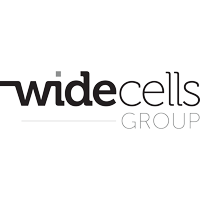It has now been decades since stem cell technology emerged as the next great breakthrough in modern medicine, with the bold potential for one day curing everything from heart disease to cancer. Today, that optimism doesn’t appear to have diminished.
It’s easy to recall the excitement. In the late 1990s, when stem cell research was still relatively unexplored but gathering pace, the hope surrounding future uses for such treatments appeared near limitless. Once greater advances had been made, it was often argued, doctors could one day inject patients with cells that have the ability to transform into any other type of cell, making it possible to grow whole new organs. In theory, any damaged area of the human body could be reparable.
It is fair to say that progress hasn’t been as quick as many had hoped. But search for the term “stem cells” on Google, and the cacophony of recent news headlines suggest that things may finally be looking up.
In just the past few weeks, a “game-changing” international trial of a stem-cell transplant showed hugely encouraging signs for multiple sclerosis (MS) sufferers; in a different British trial, two patients with age-related macular degeneration experienced greatly improved sight after stem cells were used to regrow cells in the eye; and a Canadian woman reportedly became the first adult cured of sickle cell anaemia thanks to a stem cell transplant.


